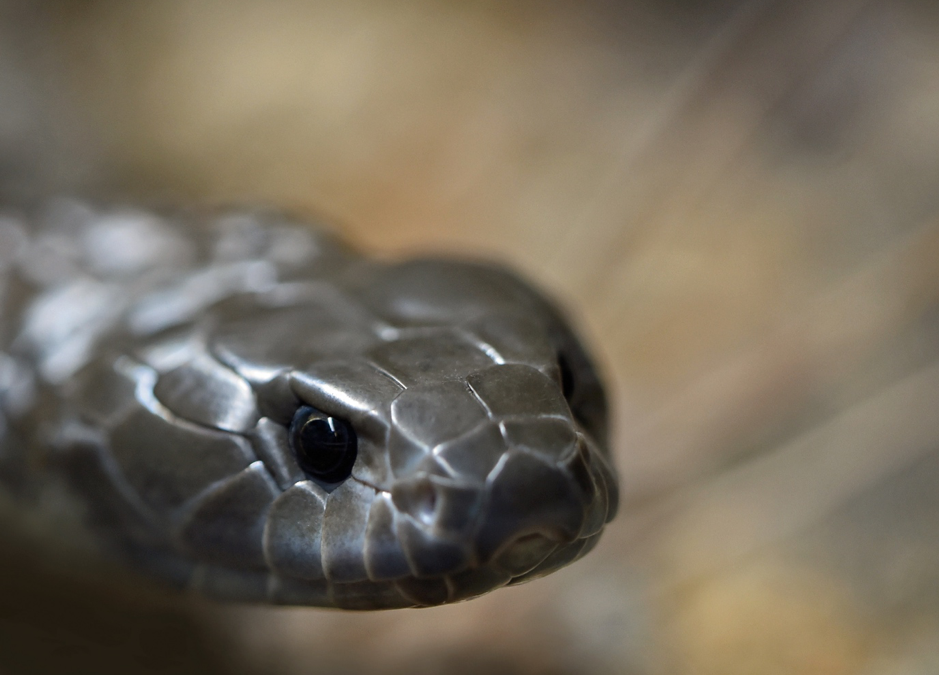While summer weather and long days usually spell lots of lovely walks and plenty of adventures for your pet, it also means we need to become more alert and aware of snakes in our surroundings. Snakes are typically more active during the warmer months and have been known to seek out water and sunny patches to sunbathe in. The incidence of pets presenting with a snakebite jumps up during December, January and February at Direct Vet Services, as opposed to less throughout Winter.
There is no denying that pet owners need to be extra vigilant in the warmer weather, however there are precautions you can take to minimize the chances of your dog or cat being bitten by a snake.
- Reduce potential hiding holes in your yardby removing any piles of rubbish or collections of old timber or corrugated iron.Keep your grass trimmed and clear unwanted bush and undergrowth.
- Keep your dog on a leash when walking through bush land– it is important to remember that snakes are often drawn to pools of water so it’s best to supervise your pet heavily if they are swimming in natural waterholes.
- Stick to cleared pathways when walking off-leash – most snake varieties will avoid any contact with you and your pet by hiding, so eliminate chance encounters by opting for cleared fields or designated walking tracks.
- Call your pet if you discover them foraging or showing increased interest in bushland –this can also apply to holes, piles of debris and gardens in metro areas.
- Remove any food sources from your immediate surroundings –food scraps from pet bowls, bird feeders or chook pens bring rodents, which in turn, attracts snakes.
If you do suspect a snake has bitten your pet, time is of the essence. Your pet has a much greater chance of survival if you bring him or her into see your Vet IMMEDIATELY.
- Make arrangements to get to your vet clinic IMMEDIATELY. If you can, call ahead to advise them of your situation. Our number here at Direct Vet Services is 03 9369 1822.
- Try to keep your pet still and offer reassurance to keep them calmen route – if your pet moves rapidly or too much, it increases the movement of the venom through his/her body.
- If you have a long drive ahead of you, or if you have someone else assisting you, attempt to bandage the affected area, on and around the bite site. This will help to immobilize the part of the body that was bitten and will slow the venom travelling through the lymphatic system.
- Do not attempt to catch or kill the snake, or waste time searching for it so you can identify it. We can take initial blood or urine samples on your arrival, which will help to identify your if you pet has been bitten, by what snake species and what our medical plan of action will be.
We are home to many venomous snakes here in Australia. While we respect all of their wonderful species and leave them to themselves, there are many circumstances that will put you and your pet at a higher risk of being exposed to an encounter with them. With some careful consideration, some forethought and quick thinking, you can reduce the chances of your pet being bitten and have a well-prepared plan of attack should the worst happen.
To contact the clinic or discuss your concerns regarding snakes in your area, call 03 9369 1822 orbook an appointment through our website booking directory.

